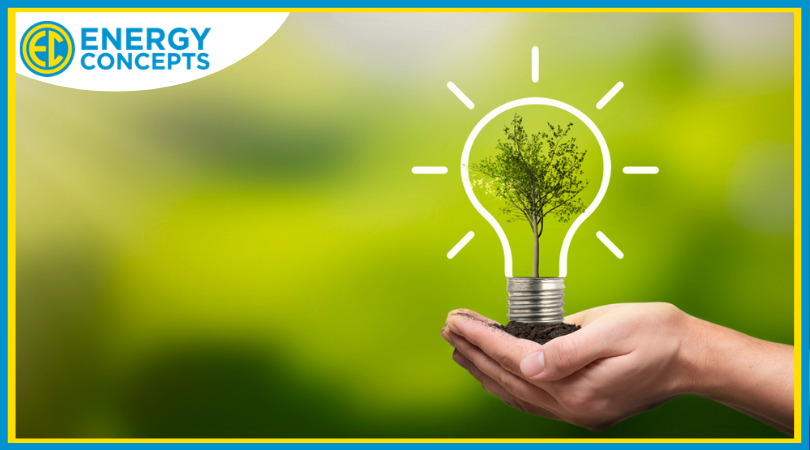Energy, in its many forms, is the lifeblood of human civilization. It propels our vehicles, powers our homes, and fuels the very engines of our economies. However, as we stand upon the precipice of ecological catastrophe, the concept of energy is evolving from mere consumption to astuteness in conservation. Energy Concepts, as a beacon of sustainability, illustrates the imperative shift toward renewable resources, aiming to mitigate the broader impacts on our planet.
At the heart of Energy Concepts lies a fundamental truth: energy itself is not a finite resource, but our methods of harnessing and utilizing it are deeply flawed. Consider energy as a vast ocean, teeming with potential yet fraught with peril. The wave of fossil fuels has surged forth, once promising to elevate our quality of life, yet it has left behind a tumultuous tide—climate change, air pollution, and dwindling natural reserves. Navigating these waters requires a radical rethinking of how we perceive and engage with energy.
The shift towards sustainable energy sources can be equated to a metamorphosis; much like a caterpillar transforms into a butterfly, so too must our energy systems evolve. Renewables—solar, wind, hydroelectric—represent the chrysalis of this transformation. They offer an elegant solution that harmonizes human needs with the inexorable rhythms of nature. Each solar panel and every wind turbine is not merely a piece of technology; they are symbols of hope, harbingers of a cleaner, more resilient future.
Embracing energy efficiency enhances this metamorphosis. To be energy efficient is to be akin to a meticulous gardener, tending to the delicate dance of plant and soil. By investing in technologies such as smart grids, LED lighting, and home insulation, society can minimize waste. This conscientious stewardship drastically reduces carbon footprints and conserves valuable resources. Indeed, every kilowatt saved is a victory for the planet.
The integration of sustainable energy practices reverberates through the economy, fostering a new paradigm that transcends traditional growth metrics. It catalyzes the emergence of green jobs, invigorating communities with new opportunities and rejuvenating local economies. This economic reset is akin to planting seeds in nutrient-rich soil; with time and care, these seeds flourish, yielding a bountiful harvest of innovation and resilience.
Moreover, Energy Concepts emphasizes the importance of community engagement. Think of this initiative as a tapestry, weaving together diverse threads—individuals, businesses, and governments—all working towards a common goal. The awareness and education fostered by such endeavors ripple outward, raising consciousness about the critical juncture we face concerning climate action. Engaging local populations in sustainability initiatives builds networks of collaboration, each thread reinforcing the other, creating a robust structure for action.
But the narrative does not end there. The global nature of climate change demands a collective response that transcends national borders. Energy Concepts stands at the nexus of local innovation and global responsibility, acknowledging that while individual efforts matter, they are merely ripples in an ocean of necessity. This network of collaboration fosters an understanding that energy solutions must be diversified and tailored to specific regional needs. Costa Rica, for example, has effectively harnessed its geographical advantages to become a leader in renewable energy, providing a model for others to follow.
Furthermore, we must confront the predilection for complacency. It is tempting to relegate the responsibility of climate action to governmental bodies or corporations alone. Yet, this attitude is akin to ignoring the breadcrumbs left by a trailblazer; by not actively participating, we forfeit our ability to influence outcomes. Each individual possesses the capacity to be a change agent. Simple acts, such as reducing water usage, minimizing single-use plastics, or advocating for public transportation, aggregate into a profound societal shift.
Transcending the individual, Energy Concepts galvanizes partnerships that harness collective power. Forming alliances among stakeholders—nongovernmental organizations, corporations, and citizens—with a mutual commitment to sustainability can magnify impact. This collaboration is the convergence of myriad currents guiding a single, sustainable course. Such synergies can lead to innovations that are more than the sum of their parts; they can revolutionize how we approach energy consumption and environmental stewardship.
The implications of Energy Concepts extend into the realm of governance, urging policymakers to embed sustainability into the very foundations of economic planning. Seeking to harmonize ecological integrity with economic development is paramount. This holistic approach necessitates new regulatory frameworks that incentivize green practices and penalize detrimental habits—an ecological balance akin to the delicate equilibrium maintained in a thriving ecosystem.
As we reflect on the broader impact of Energy Concepts, we must recognize that every small commitment cultivates a larger movement. Therein lies the unique appeal of this philosophy: it reminds us that sustainability is not an abstract concept but a practical approach woven into daily life. By adopting a mindset inclined towards sustainability, society can inspire change not merely in energy consumption but in the entire ethos of living.
In closing, envision the world we could inhabit—one where clean energy thrives, where intelligent design meets diligence, where communities flourish, and where humanity coexists symbiotically with the ecosphere. This is not an unattainable dream; it is the very future that platforms like Energy Concepts strive to create. By embracing the potentials of renewable energy, we catalyze a movement toward an equitable, sustainable world. Each decision we make today shapes the contours of tomorrow, forging a resilient path for generations to come. Let us navigate these waters with purpose and determination, for the tide is turning, and the ocean of opportunity awaits.






